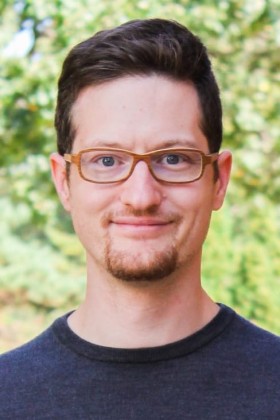
In this Sustainable Energy Seminar, Dominic Gross, Assistant Professor of Electrical and Computer Engineering, will discuss the role that power converters will play for grid stability and reliability as the grid transitions to a system dominated by renewable generation.
Abstract:
At the heart of the transition to a zero-carbon power system is a technological paradigm shift from conventional generation to renewable generation connected to the grid via power electronics. In this context, the literature and public debate mostly focus on the variability and intermittency of renewable generation on the timescale of minutes to days. A much less well understood knowledge gap that limits the contribution by renewable generation, is how to control and maintain the stability of power systems dominated by power electronics converters on the timescale of milliseconds to seconds. Today, stable and reliable operation of power systems on the timescale of milliseconds to seconds is guaranteed through a combination of control and inherent physical properties of synchronous machines used in conventional bulk power generation. These characteristics of synchronous machines will be lost as synchronous machines are replaced by converter-interfaced resources at scale. This results in significantly different power system dynamics and challenges standard operating paradigms, but also results in new opportunities to leverage the fast and flexible response of power converters. This lecture will focus on recent trends in grid-forming power converters that can replace (and improve upon) the functions of synchronous generators and are envisioned to be the cornerstone of future sustainable and resilient power systems.
Registration is required for this webinar through Zoom. Click here to register for this and all other webinars as part of the Sustainable Energy Seminar series.
